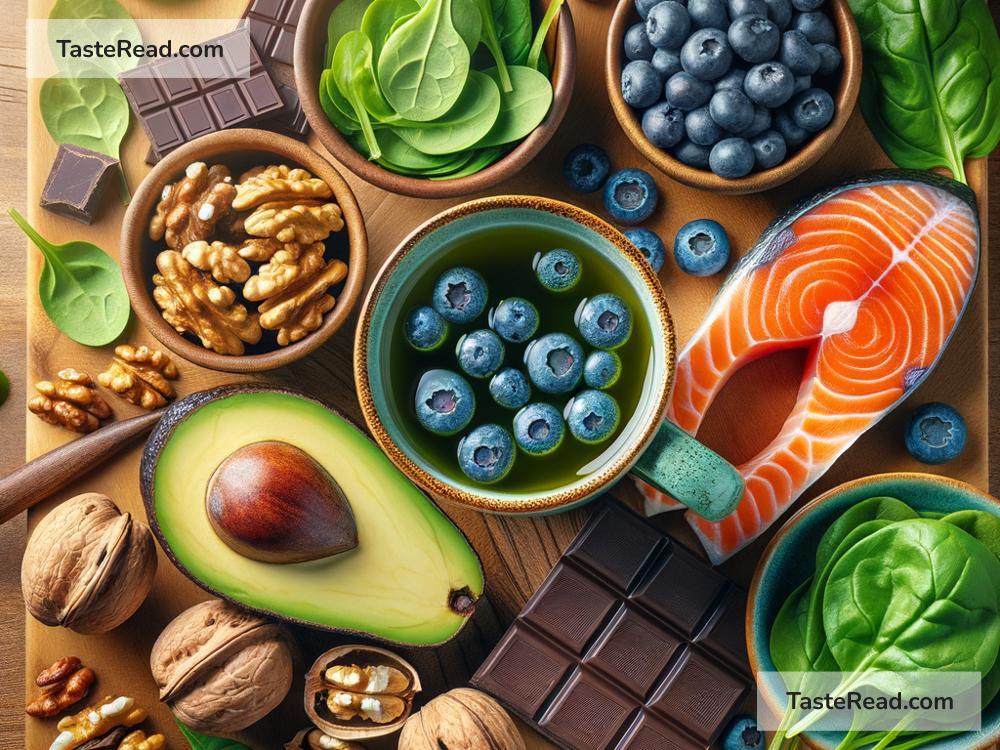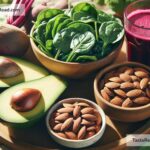Foods That Help Improve Brain Structure and Health
Our brains are incredible organs—they allow us to think, solve problems, create, and connect with others. Keeping the brain healthy is essential for living a happy and productive life. Science has shown that the foods we eat directly impact the brain’s structure and function. So, eating the right foods can provide long-lasting benefits for memory, learning, focus, and overall mental health.
In this article, we’ll explore some of the best foods for improving brain structure in simple terms. Let’s dive in!
1. Fatty Fish: The Ultimate Brain Booster
If there’s one food that’s considered a “superfood” for the brain, it’s fatty fish. Fish like salmon, mackerel, trout, and sardines are loaded with omega-3 fatty acids, which are essential for brain health.
More than half of the brain is made up of fat, and omega-3 fatty acids are a critical building block for brain cell membranes. These fats help strengthen communication between brain cells, improve memory, and may even protect against mental decline as you age.
If you don’t eat fish, you can still get omega-3s through plant-based options like chia seeds, flaxseeds, walnuts, and algae supplements.
2. Blueberries: Tiny Fruits with Big Benefits
Blueberries are packed with antioxidants that fight harmful free radicals in the brain. Free radicals can damage cells and speed up aging. Antioxidants in blueberries, like flavonoids, help protect the brain and improve communication between neurons.
Studies suggest that blueberries may also boost memory and slow cognitive decline. Adding these tasty fruits to smoothies, oatmeal, or as a snack is an easy way to help your brain stay sharp.
3. Leafy Greens: Fuel for the Brain
Leafy green vegetables such as spinach, kale, and broccoli are rich in nutrients like vitamin K, folate, and beta carotene. These nutrients help improve communication between brain cells and support overall brain structure.
Studies show that a diet rich in leafy greens may help slow cognitive decline and reduce the risk of diseases like Alzheimer’s. If you’re not a fan of salads, you can sauté greens, blend them into smoothies, or toss them into soups—whatever it takes to incorporate them into your diet!
4. Nuts and Seeds: Tiny Powerhouses
Nuts and seeds are great snacks that provide a wealth of brain-boosting nutrients. Almonds, walnuts, pumpkin seeds, and sunflower seeds are filled with vitamin E, healthy fats, and antioxidants.
Vitamin E is especially beneficial as it helps fight oxidative stress (the damage caused by free radicals). This can keep your brain healthy as you grow older. Walnuts are particularly special—they are rich in omega-3s, making them a powerful food for improving brain structure.
5. Whole Grains: Energy for Focus
Whole grains like oatmeal, quinoa, brown rice, and whole wheat bread give your brain the steady energy it needs to function well. Your brain’s primary energy source is glucose (a type of sugar), and whole grains release it slowly over time.
This slow release helps maintain focus and productivity throughout the day. Refined carbohydrates like white bread and sugary snacks cause energy spikes followed by crashes—not ideal for long-term brain health. Switch to whole grains for a more balanced, steady source of energy.
6. Avocados: Creamy and Brain-Friendly
Avocados are delicious and packed with healthy fats that can improve brain structure. These fats help protect brain cell membranes and improve blood flow to the brain, which is important for optimal functioning.
What’s more, avocados contain vitamins C and E, both of which have antioxidant properties that protect the brain from damage. Spread avocado on toast, mix it into salads, or enjoy it as guacamole—it’s good for both your body and brain!
7. Dark Chocolate: A Sweet Treat for the Brain
Good news for chocolate lovers—dark chocolate is brain-friendly! Dark chocolate contains flavonoids, which are powerful antioxidants. These compounds can improve memory, boost mood, and increase blood flow to the brain.
However, it’s important to choose chocolate that’s at least 70% cocoa to get the most benefits and avoid too much added sugar. A small piece of dark chocolate is the perfect treat for your brain health.
8. Eggs: A Great Source of Choline
Eggs are a simple and budget-friendly food that’s great for the brain. They are rich in choline, a nutrient that helps create acetylcholine, a neurotransmitter necessary for memory and learning.
Eggs also contain essential nutrients like B vitamins, which can reduce brain inflammation and support mental function. Whether scrambled, boiled, or cooked into a recipe, eggs are a versatile option for brain health.
9. Turmeric: The Golden Spice
Turmeric, often used in curries, contains curcumin, a compound with strong anti-inflammatory and antioxidant effects. Curcumin can cross the blood-brain barrier, meaning it directly benefits the brain.
Turmeric may help improve memory, reduce depression symptoms, and grow new brain cells—a process called neurogenesis. Adding turmeric to soups, stir-fries, or teas is a simple way to incorporate this spice into your diet.
Conclusion: Nourish Your Brain Every Day
Your brain works hard to keep your body running and tackle daily challenges, so it deserves proper care. Eating a variety of nutrient-rich foods like fatty fish, blueberries, leafy greens, nuts, seeds, whole grains, avocados, eggs, dark chocolate, and turmeric can help improve brain structure and keep your mind sharp for years to come.
Remember, consistency is key. Try adding these brain-boosting foods to your diet regularly and pair them with a healthy lifestyle that includes exercise, quality sleep, and stress management. By making small, positive changes, you’ll be investing in your brain’s long-term health and happiness.
So go ahead—give your brain the nutrition it needs and enjoy the benefits!


